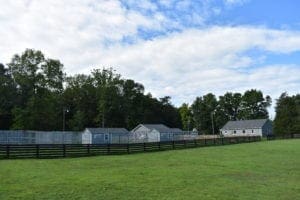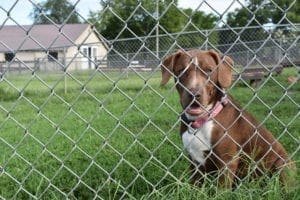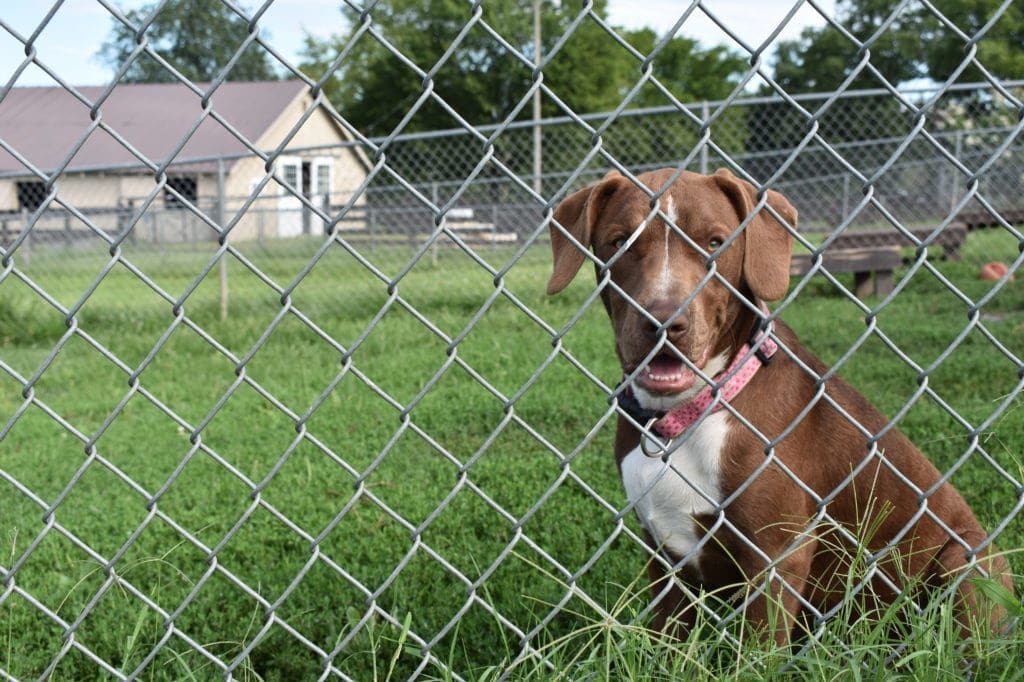Shelter Profile Highlight – Humane Society of Fairfax County
We are highlighting Missy Schrott’s report on the Humane Society of Fairfax County (HSFC) animal shelter in Fairfax, Virginia, about 35 minutes outside of Washington, D.C. Schrott visited the shelter in July 2019, spoke with its leaders, and delivered this report, which has been made partially available to all readers. Read the full report here. Sign up today for a free, all-access, 3-month trial subscription. You can cancel any time.
—-
 Fairfax, Virginia – The Humane Society of Fairfax County (HSFC) has been taking in dogs, cats, rabbits, birds, and even horses since 1965.
Fairfax, Virginia – The Humane Society of Fairfax County (HSFC) has been taking in dogs, cats, rabbits, birds, and even horses since 1965.
The shelter has two locations in Fairfax County – a central location in downtown Fairfax that houses cats, small animals and the organization’s administrative offices; and an idyllic farm location in Centreville for dogs and horses.
The Canine Review visited the shelter’s farm location in July. First impressions revealed huge kennels, ample outdoor space, and strict adoption processes.
The facility
The 23-acre farm site includes a large main kennel building, quarantine kennels, a barn for the horses, and several large, grassy fenced fields.
The main kennel, which was built around 2010, houses dogs who are currently available and on view for potential adopters. It has a collection of 20 small, medium, and large kennel spaces.
Depending on how the dogs get along, some of the larger kennels are home to more than one animal. Dogs will only share kennels after they’ve gone through an extensive trial period and staff feels comfortable that the match is safe, according to Michael Sweeney, operations manager of HSFC’s farm site.
Regarding the average stay for dogs at the shelter, it ranges from two weeks to more than a year. Sweeney said HSFC will shelter the dogs indefinitely until they are adopted.
Outside of the main kennel, the farm has five quarantine “houses” for dogs recently admitted or who pose a health threat to other animals.
When The Canine Review visited, the shelter was recovering from a Parvovirus outbreak, and all of the quarantine houses were filled. There were no fatalities, Sweeney said, and the shelter had the funding to treat all impacted animals quickly.
The shelter recently built an additional eight quarantine dog houses adjacent to one of its horse fields. Each of the new structures, which will house quarantined or sick animals, has air conditioning, heating, lights, speakers for music, a private patio and a private yard. The yards are enclosed in 10-foot fences to ensure no animals break out – or into – the houses.
The farm site also has several fenced-in fields where volunteers take the dogs to play off-leash and to practice walking on-leash.
“We are very different from a lot of other rescues,” Sweeney said. “We do offer these guys ample space and ample amount of yards.”
Sweeney said the dogs get plenty of outside time each day. Each kennel has a door flap that leads to a small, fenced-in area. The dogs are free to move from inside to outside during shelter hours, which are 8 a.m. to noon and 4 to 7 p.m. daily. In addition, volunteers and staff usually take the dogs out for walks and play time multiple times a day, Sweeney said.
The organization is largely volunteer-run. At the farm site, there are seven full-time staff members in addition to Sweeney, four kennel staff dedicated to the dogs and three barn staff members who work with the horses. There is also a full-time veterinarian on call.
At its farm location, HSFC has an average of 80 active volunteers per week, although that number fluctuates, according to Sweeney.
One of the unique features of the HSFC is its spay-neuter van, which The Canine Review visited.
About eight years ago, a donor endowed an RV-turned-veterinary-clinic-on-wheels.
The van includes a large operating table that allows the veterinarian to perform minor procedures, dental work, vaccinations, as well as spays and neuters for dogs weighing less than 50 pounds. When it’s not serving the community, it is parked at the farm just outside the main kennel.
Intake procedures
HSFC is not an open admission shelter. It is not required to take in any animal since it is not funded or operated by any county, city, or state. As such, the shelter’s intake processes are different from open admission shelters. In 2018, the shelter got most of its dogs from a high-kill shelter in Nelson County, Virginia, according to shelter data submitted to the Virginia Department of Agriculture and Consumer Services in January 2019.
The second highest source of animal intake is owner surrender, according to the data. Because the shelter is not open admission, owners wishing to surrender their dogs must fill out a questionnaire with details about the dog, including age, reason for surrender, and vaccination record.
When the shelter takes in a dog, it is quarantined for at least two weeks while it undergoes behavioral and veterinarian tests.
The shelter has a relatively low euthanasia rate, with only one dog euthanized in 2018, one in 2017, and four in 2016.
“We don’t want to euthanize any of our animals,” Sweeney said. “So basically, what happens is once we intake a dog, they will stay with us until they are adopted regardless of length of time.”
Sweeney said that because of the amount of funding the shelter gets from donors, it is more willing to take in animals with medical conditions than some other shelters.
“We understand because of some of our policies in place, we don’t have a large adoption number throughout the year and we’re perfectly okay with that,” Sweeney said. “We do like helping out specific animals in need. Say a dog needs a specific surgery. We are definitely willing to help out dogs that are more likely to be passed over by other organizations due to medical conditions.”
Adoption procedures
As a limited admission shelter, and therefore taking in less animals, HSFC’s adoption policies are stricter than most, Community Outreach Coordinator Gina Lynch explained. The result is a longer and more difficult adoption process.
However, the thorough vetting processes are responsible for a low return rate for adopted animals, Sweeney said. Shelter staff pride themselves in being “match-makers” for dogs and adopters….. [CONTINUED]

